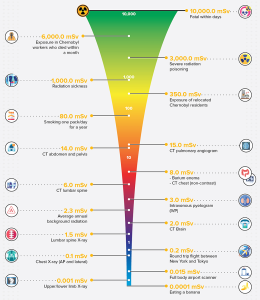- Many potentially deadly diseases like influenza can be prevented by vaccination.
- US study investigates the impact of these infections – which could be prevented by a quick jab.
- Researchers found vaccine-preventable diseases (VPDs) exacerbate circulatory and respiratory diseases.
- Adult vaccinations could decrease all-cause hospitalisations, says Professor Mark Doherty from GlaxoSmithKline, Belgium.
- Findings could help reduce healthcare burden of VPDs in rapidly ageing global population.
A quick jab in the arm is all it takes to protect yourself against some of the world’s deadliest diseases. Since their discovery in the 1700s vaccines have revolutionised the modern healthcare system. From chicken pox and shingles to influenza and COVID-19, vaccination has reduced the severity and prevalence of infectious diseases around the world.
The World Health Organization estimates that between two and three million deaths are prevented by vaccinations every year. The actual number may be much greater, considering that the rollout of the smallpox vaccine eradicated the deadly disease in the 1970s.
However, the rising impact of infectious diseases in ageing populations has been an increasing area of concern. During the COVID-19 pandemic, high rates of hospitalisations shone a spotlight on this problem, but the link between vaccine-preventable diseases and hospital admissions has so far been poorly understood. Professor Mark Doherty and his colleagues at GlaxoSmithKline (GSK), Belgium, set out to address this knowledge gap.

Adult vaccinations inject resilience
Now, there are indications that adult vaccinations may have wider-reaching, indirect benefits by potentially limiting hospitalisations for people with non-communicable diseases that are not infectious, such as heart or respiratory failure. GSK researchers investigated the link between vaccinations and prognosis for vaccine-preventable diseases (VPDs) in all-cause hospitalisations.
Their research reveals that infectious diseases which can be prevented by vaccines, like influenza and shingles, could play an underappreciated role in the hospitalisation of people with heart disease, respiratory problems, or other non-communicable diseases.
Diseases such as influenza or shingles may play a triggering or exacerbating role in an incident like a heart attack.
The researchers found that vaccines are not only beneficial for the patient but could significantly reduce the impact of VPDs on health system resources – already overstretched by a rapidly ageing global population.
Risk: vaccine-preventable diseases
The researchers used the medical insurance claims data of more than three million admissions, in people over 50 years old, to see if VPDs increase the number of all-cause hospital admissions and the length of stay for events linked to non-communicable diseases.
They discovered that during the winter season around 5% of patients were hospitalised due to a primary diagnosis of a VPD. However, around 17% of patients were hospitalised because of a non-communicable disease and subsequently diagnosed with a VPD such as influenza.

The vast majority of these patients received their secondary diagnosis immediately after admission or one to two days later, indicating that the patient was infected before hospitalisation. Adult vaccination could have significantly reduced these figures.
Can the flu trigger a heart attack?
The researchers found that patients with circulatory or respiratory diseases, such as heart attacks, strokes, or COPD, were over-represented among those diagnosed with an underlying VPD. Their findings support previous research identifying an increased risk of hospitalisation for people with circulatory and respiratory illnesses following influenza infection.
‘The data showed that many patients admitted into hospital for circulatory or respiratory diseases also had a concurrent disease that could have been prevented with a vaccine,’ says Doherty, a key author of the pilot study. ‘This suggests that diseases such as influenza or shingles may play a triggering or exacerbating role in an incident like a heart attack.’ Doherty explains that such hospital admissions are ‘in theory, entirely preventable’.
A secondary vaccine-preventable disease diagnosis led to an average of three additional days in hospital.
All-cause hospitalisations and VPDs
The researchers believe that the role of VPDs in the hospitalisations of older adults is currently significantly underestimated. Their data implies that the prognosis of patients with secondary VPDs is likely to be worse than for those without one – reducing the probability of being discharged from the hospital back to their homes and increasing the likelihood they would require care at another facility. Preventing infectious diseases with vaccines could mean some non-communicable diseases are less likely to lead to hospitalisation and improve patient prognosis.
Each winter, hospitals experience overcrowding due to an increased number of patients needing hospital treatment. Overcrowding due to such ‘winter stress’ can impact the healthcare system in many ways: elective treatments may be cancelled or postponed, patients discharged too early, and added pressure on hospital staff can increase the risk of errors. Older adults represent the majority of hospital inpatients, so with a rapidly ageing global population, this problem is only set to intensify in the coming decades.

The researchers’ findings could offer significant benefits to the health care system as a whole, particularly if the number of all-cause hospitalisations or the length of a hospital stay can be reduced, guiding the allocation of health system resources to where they are most needed for cost-effective preventative measures. This would both save money and improve public health over the long term, plus reduce the strain on already overstretched healthcare systems.
Simple and cost-effective solution
Cases of influenza and shingles in US adults over the age of 50 are estimated to cost more than $21 billion US in direct medical and societal costs. Vaccines are a simple and cost-effective solution. The GSK study shows that vaccine programmes for older adults could prevent hospitalisations for both VPD admissions and circulatory or respiratory diseases exacerbated or triggered by a VPD.
‘More work is definitely needed,’ says Doherty, ‘but as vaccination remains underutilised in older adults, improving our knowledge in this area may be crucial to our ability to effectively deliver care to ageing populations.’ Adult vaccination could therefore reduce – or even eliminate – the global health system burden of vaccine-preventable diseases.
What led you to conduct this research on vaccine-preventable diseases and all-cause hospital admissions?
There are a lot of studies showing that – for example – influenza-vaccinated older adults are less likely to be admitted to hospital and less likely to die from cardiac conditions like myocardial infarction. But there is relatively little evidence looking at the impact of this on hospitalisation or healthcare systems.
Which infectious diseases should be prioritised for adult vaccinations and why?
The focus right now is on infections that can cause acute respiratory disease, since this is a major source of illness and death in older adults – diseases like influenza, respiratory syncytial virus and SARS-Cov-2. These diseases also seem to be risk factors for so-called ‘downstream events’ like strokes or cardiac disease. However, other diseases which can cause inflammation such as Herpes simplex virus 1, Varicella, and some bacterial infections are also potential risk factors.
What further research in this area is needed and what are your future research plans?
The next step is to drill down into diagnoses in more detail, so that we can see what kinds of specific pathogens are associated with specific outcomes, and what the additional costs of each of these are. That would let us make more specific analyses on how much these infections are costing hospitals and clinics – both in terms of dollars and in terms of resources – as well as impact on patients, so that ultimately, we can make recommendations on how to reduce that.











